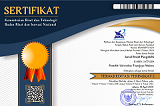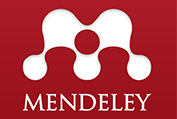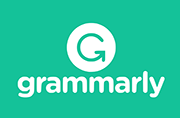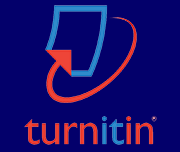English Camp Enjoyable Learning: Pendampingan Program Pembelajaran Bahasa Inggris untuk Siswa MA Al-Asy'ari Keras Diwek Jombang
Abstract
This activity aims to provide training and assistance for English language learning programs outside class hours using a hybrid learning approach. This community service takes the form of assisting an English language club in the form of an English Corner to become a forum for learning English which will later become one of the school's extra-curricular activities. The results of the achievements of ECEL participants during the training program both in terms of cognitive and skills are in line with expectations, namely (1) participants are able to understand the ECEL program material by 95%, (2) participants are able to practice speaking English with the ECEL learning model by 85%, (3) participants stated that the ECEL program could be applied to students learning to speak English (speaking) as much as 100%, (4) participants stated that the learning module designed by the Abdimas team could be applied to the ECEL program as much as 99% and (5) participants felt that the program ECEL is effective, fun and we hope that in the following years 95% more activities like this program will be held.
Keywords
Full Text:
PDF (Bahasa Indonesia)References
Darmansyah. (2020). Strategi Pembelajaran Menyenangkan dengan Humor. Jakarta: Bumi Aksara.
Fransisca, S. (2019). Fun Meets Knowledge: English Enrichment through Camp America. Journal of English Language Teaching Innovations and Materials , 1(1) 25-28.
Goltum, J. R., Sundara, D., & Fatwara, M. (2022). Pembelajaran Hybrid Learning Model sebagai Strategi Optimalisasi Sistem Pembelajaran di Era Pandemi Covid-19 pada Perguruan Tinggi di Jakarta. Mediasprima , 28 (1) 11-22.
Halili, M., Hikmah, D., & Sriyono. (2021). Pengembangan Bahasa Inggris melalui Metode "Si Ular dan Si Elang". Jurnal Ilmiah Pangabdhi, 7(1) 1-6.
Hendrayati, H., & Pamungkas, B. (2013). Implementasi Model Hybrid Learning pada Proses Pembelajaran Mata Kuliah Statistika II di Prodi Manajemen FPEB UPI.4. Jurnal Penelitian Pendidikan , 181-184.
Indarto, P., Fatoni, M., & Nurhidayat, N. (2018). Model Pembelajaran Hybrid Learning pada Mata Kuliah Sepakbola di Pendidikan Olahraga FKIP UMS. Mengembangkan Kompetensi Pendidik dalam Menghadapi Era Disrupsi, 3 (2) (pp. 55-64). Surakarta: UMS.
Makhin, M. (2021). Hybrid Learning: Model Pembelajaran pada Masa Pandemi di SD Negeri Bungurasih Waru Sidoarjo. MUDIR (Jurnal Manajemen Pendidikan) , 3 (2) 95-103.
Ma'rifatullah, S., Siswanto, M. B., Fitriyah, L. A., Diastuti, I. M., & Rodliyah, L. (2020). Workshop Pembelajaran E-Learning di Era Society 5.0. Jurnal Ilmiah Pangabdhi , 6(2) 163-173.
Noguchi, T. (2019). The Impact of An Intensive English Camp on English Language Anxiety and Perceived English Competence in the Javanese English Context. Journal of Pacific Association of Applied Linguistics , 23 (1) 37-58.
Rahmawati, M. (2020). The English Camp as Method of Promoting Fun English at Elementary School Level in Indonesia. Jurnal Penelitian Ilmiah TAPiS , 4(2) 174-182.
Ready, A. F., & Indrayani, N. (2021). English Camp as Learning and Teaching Atmosphere of Speaking Ability Development. Journal of Language Intelligent and Culture , 3 (2) 107-124.
Rorimpandey, W. H., & Midun, H. (2021). Effect of Hybrid Learning Strategy and Self-Efficacy on Learning Outcomes. Juornal of Hunan University Natural Science , 48 (8) 181-189.
Sagala, S. (2009). Kemampuan Profesional Guru dan Tenaga Kependidikan . Bandung: Alfabeta.
Thamrin, Hutasuhut, S., Aditia, R., & Putri, F. R. (2022). The Effectiveness of Hybrid Learning Materials with the Application of Problem based Model (Hybrid-PBL) to Improve Learning Outcomes during the Covid-19 Pandemic. IJORER: International Journal of Recent Educational Research , 3 (1) 124-134.
Torne, K. (2003). Blended Learning: How to Integrate Online and Traditional Learning. Canada: Kogan Page Publishing.
Tsai, A. (2011). A Hybrid E-Learning Model Incorporating Some of the Principal Learning Theories. Social Behaviour and Personality an International Journal , 39 (2) 145-152.
Umiyati, M. (2022). Hybrid Learning Model in Learning English (Effectiveness and Advantages). International Linguistics and TESOL Journal , 1 (1) 1-12.
Vaughan, N. (2007). Perspectives on Blended Learning in Higher Education. International Journal on E-Learning , 6 (1) 81-94.
Yulyantari, L. M., Sumiarti, N. K., & Wedasari, N. L. (2021). Pemaksimalan Media Pembelajaran untuk Pembelajaran Daring pada SDN 9 Dauh Puri Denpasar. Jurnal Ilmiah Pangabdhi , 7 (2) 64-67.
DOI: https://doi.org/10.21107/pangabdhi.v10i1.15631
Refbacks
- There are currently no refbacks.
Copyright (c) 2024 Aang Fatihul Islam, Afi Ni'amah, Devi Latifah Fatin

This work is licensed under a Creative Commons Attribution-ShareAlike 4.0 International License.
Jurnal Ilmiah Pangabdhi by Universitas Trunojoyo Madura is licensed under a Creative Commons Attribution-ShareAlike 4.0 International License.













